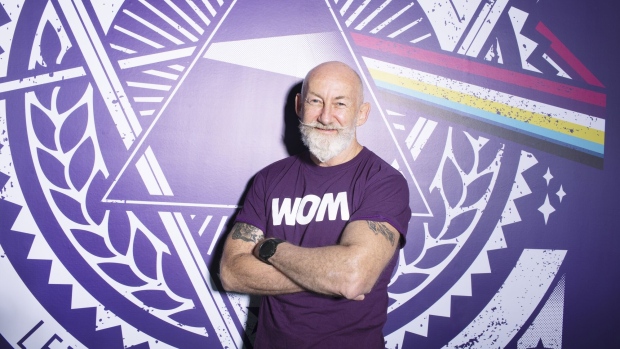Apr 2, 2024
JPMorgan Deal, Easter Call Were Last Steps Before Chilean Firm WOM’s Bankruptcy
, Bloomberg News

(Bloomberg) -- Struggling Chilean telecom operator WOM had its fate sealed in a 7 a.m. meeting on Easter Sunday that capped months of creditor angst and last-minute talks for funding.
Executives gathered at the company’s headquarters on the banks of the Mapocho River in Santiago, the nation’s capital. A deadline for filing earnings, plummeting bond prices, and an approaching debt payment added to the urgency. According to court filings, the team had five offers — known as debtor-in-possession financing — on the table.
After 30 minutes, they picked a deal for around $210 million from JPMorgan Chase & Co.. Hours later, the company filed for Chapter 11 in US bankruptcy court — protecting it from having to pay bondholders and other creditors.
The Sunday morning affair, which half of the eight participants joined by phone and was detailed in the filings, marked an unceremonious fall from grace for a closely held mobile operator that had once thrilled bond investors by winning market share from bigger rivals in the competitive Chile market.
WOM — which stands for “word of mouth” was stung by what it deemed “external events” including limited access to credit lines following Moody’s Ratings’ downgrade to seven notches into junk last October.
The company — and its financial adviser Rothschild & Co. — had tried for months to find a way stave off bankruptcy and raise money for a $348 million debt payment due in November. Finally, it buckled.
“We had explored lots of options and this is the best one to ensure WOM moves forward and regains its mojo,” Chief Executive Officer Chris Bannister wrote in a LinkedIn post, citing high interest rates, inflation and a weak peso as contributing to the company’s woes.
The loan from JPMorgan, if approved by the court, will be used to keep operations going and pay expenses, including employees, according to the company.
Founded as a startup in 2015 when Icelandic businessman Thor Bjorgolfsson’s private equity fund Novator Partners LLP acquired Nextel Chile, WOM quickly made waves for its brash ads. Soon, it became the nation’s fastest-growing mobile-phone operator.
But trying to survive in a sector dominated by some of the world’s wealthiest telecom moguls, including Latin America’s richest man, Carlos Slim, and American billionaire John Malone, meant weathering pricing wars that proved a cash drain. Back in 2015, WOM said it was offering discounts of as much as 30% below the competition.
As of September, the company had about 21% of market share for Chile’s mobile lines, lagging Telefonica SA’s Movistar and Entel SA, according to data collected by the industry regulator. Its modest revenue relative to global and local peers, coupled with high leverage and intense competition in the Andean nation, constrained its credit score, according to Moody’s.
“There’s too much competition, pricing, aggressive capex, lack of funding vehicles,” said Warren Hyland, a portfolio manager at Muzinich & Co. in London who oversees $3.6 billion in emerging-market assets. “The best thing to do is not to be invested in the high-yield telecom space.”
In the case of WOM, some investors waited months for signs of support from the controlling shareholder. When the company delayed the release of financial results and it became clear that controller support wouldn’t materialize, the collapse was hard and fast. Bonds due 2024 last changed hands at around 33 cents on the dollar, from 77 cents where it traded less than a month ago.
“When it became clear that the company would not be able to achieve a regular-way refinancing of the 2024 notes, Rothschild pivoted to sourcing out-of-court and DIP financing proposals,” Marcelo Messer, a managing director at Rothschild, said in court filings.
As WOM reorganizes, strategists now see room for consolidation to follow — a trend that has already picked up in countries like Brazil, which saw telecom giant Oi SA file for bankruptcy protection twice in less than seven years. Oi eventually sold its mobile operations to local units of Telefonica SA and Telecom Italia SpA.
WOM has been a “major disruptor” in the Chilean sector over the past few years, BNP Paribas strategist Alexis Panton wrote in a note this week. But “there is sizable risk the company will be unwound, and its assets sold and distributed among its competitors.”
--With assistance from Zijia Song and Carolina Gonzalez.
(Updates bond price in 13th paragraph)
©2024 Bloomberg L.P.





